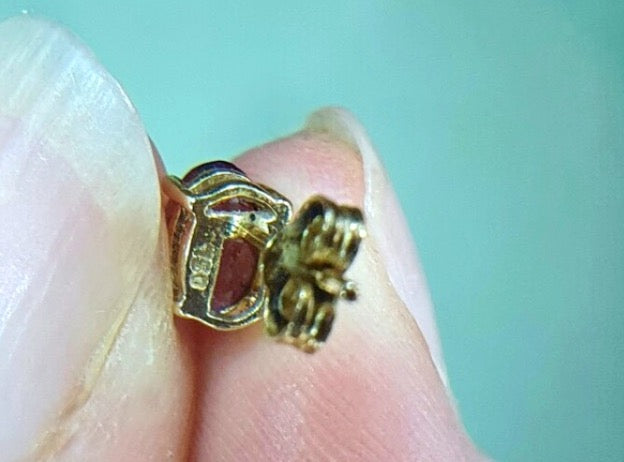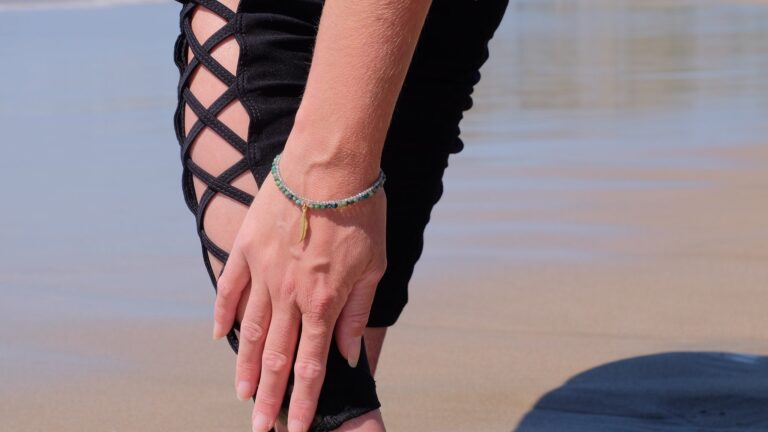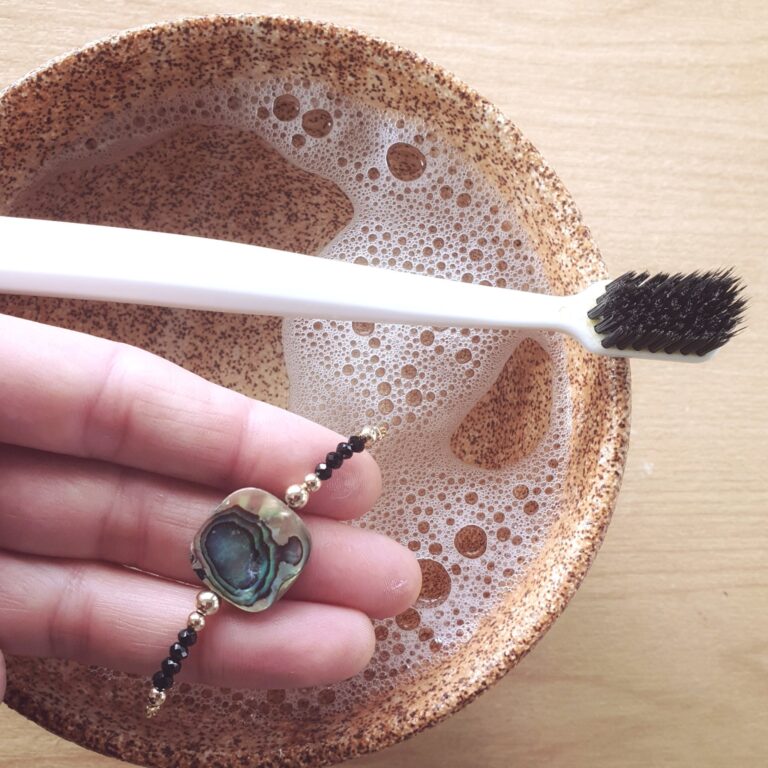What metals are hypoallergenic?
It is hard to dwell into the realm of jewellery as there are many forms of metals but some are more skin friendly than others.
Gold, Silver, stainless steel, brass, copper, plated gold, etc.?
If you have a sensitive skin, you know how important it is to take care of it and to choose a piece of jewellery that will not react.
Getting itchy rashes, swelling or even blisters, mainly from the nickel included in the metal, is never a pleasant experience.
That is why, it is important to question your jeweller about the type of metals used but also mention about your allergy.
This is not an exact science as some people are more sensitive than others.
So which one is hypoallergenic?

Photo: Secret Fern.
Gold — YES — For centuries, 18K or 24K Gold has been priced by jewellers as a favourite since the old age across culture whether in the Egypt, Greece, Romans or South America, etc.
Gold is dense, lustrous and durable. It has the advantage of being neither tarnishing nor subject to corrosion.
Thus, a good quality gold jewellery is the perfect choice for being hypoallergenic
18K gold earrings stamped 760.
But:
- Not all gold are equal: A 24K is pure gold. The lower the karats, the more gold is mixed with alloys such as silver or copper.
- Gold jewellery can be pricey compared to other metals.

Photo: Secret Fern.
Silver — YES and NO — Sterling Silver is hypoallergenic as it contains 92.5% pure silver, the rest is mostly copper at 7.5%.
Therefore genuine Sterling Silver is always stamped 925. Look for this stamp on your jewellery piece.
There are, however, some unscrupulous seller who will market their jewellery as “silver” but is in fact, silver plated.
It means the silver content is lowered, being a microscopic film and mix with a cheaper base alloy such as nickel, brass or copper. Authentic Sterling Silver stamped 925.
Gold Plated — YES and NO — Similar to the silver plating process, Gold plated will tarnish overtime as it is a microscopic film of gold coated with generally copper or silver as base metal with a layer of nickel underneath.
Depending on the quality of your gold plating jewellery, it can take months or years before it tarnishes however when the gold plating disappear It might not be allergenic and some skin will react to this.
I have experienced this first hand with a gold plated ring which overtime became blackish and produced redness and swelling of my skin.

Photo: Secret Fern.
Gold Filled — YES — It generally contains 5% of at least 10K gold (generally 12k or 14k) bonded with heat over a base metal which could be stainless steel, brass.It is a solid gold layer that will last a long time and not chip away.
Because your skin is in contact with solid gold, it will not react.
Also, it has the advantage of being more affordable than pure or karat gold. One of our Gold Filled finding.

Photo: Secret Fern.
Brass — NO — Most brass are made of 66% copper and 34% zinc. Brass will corrode when exposed to water and sweat.
Although most brass is recycled nowadays, it generally contains around 2% lead. In California for instance, jewellery labelled as “lead-free brass” still have lead but at a reduced amount of 0.25%. Even minimal amounts of lead can have hazardous health effects on the long run.
Brass ring that is partly tarnished.
Copper — YES and NO — Pure copper is hypoallergenic but will stain your skin green mainly due to its oxidation properties. Also pure copper is non corrosive and will last a life time, and more.
If you do not mind your jewellery gaining a blue-green patina over the years then it is a great choice too.
However, because copper is quite a soft metal, some jewellers will strengthen it with nickel, therefore, in this case, it might cause allergic reactions.
Surgical Steel — MAINLY YES — It is a high-quality stainless steel used for medical/surgical equipment. Therefore, most body piercings are labelled surgical steel and hypoallergenic.
Surgical steel is a type of highly anti-corrosive stainless steel, meaning it will not rust or leave marks on your skin. Although stainless steels do have traces of nickel, the surgical grade has also low content (around 8-10%) and due to its application in the biomedical industry allergic reactions are rare that is why it is mostly labelled as hypoallergenic.
As being allergic to nickel and having to deal with swelling, rashes from jewellery, I have never had an allergic reaction from surgical steel.
However, if you have found being highly reactive/sensitive to temporary dental implants, body piercing, medical equipment, cooking equipment then surgical grade – and even stainless steel – might still not be the right choice for you.
Also, jewellers can use fabric, silicone, or thread, etc. for more skin safe creations.

Photo: Secret Fern.
Of course, this list of metals is by no means complete but intent to provide an overview of the most common base metals in order to make an informed decision when buying your jewellery piece.
AROHA






